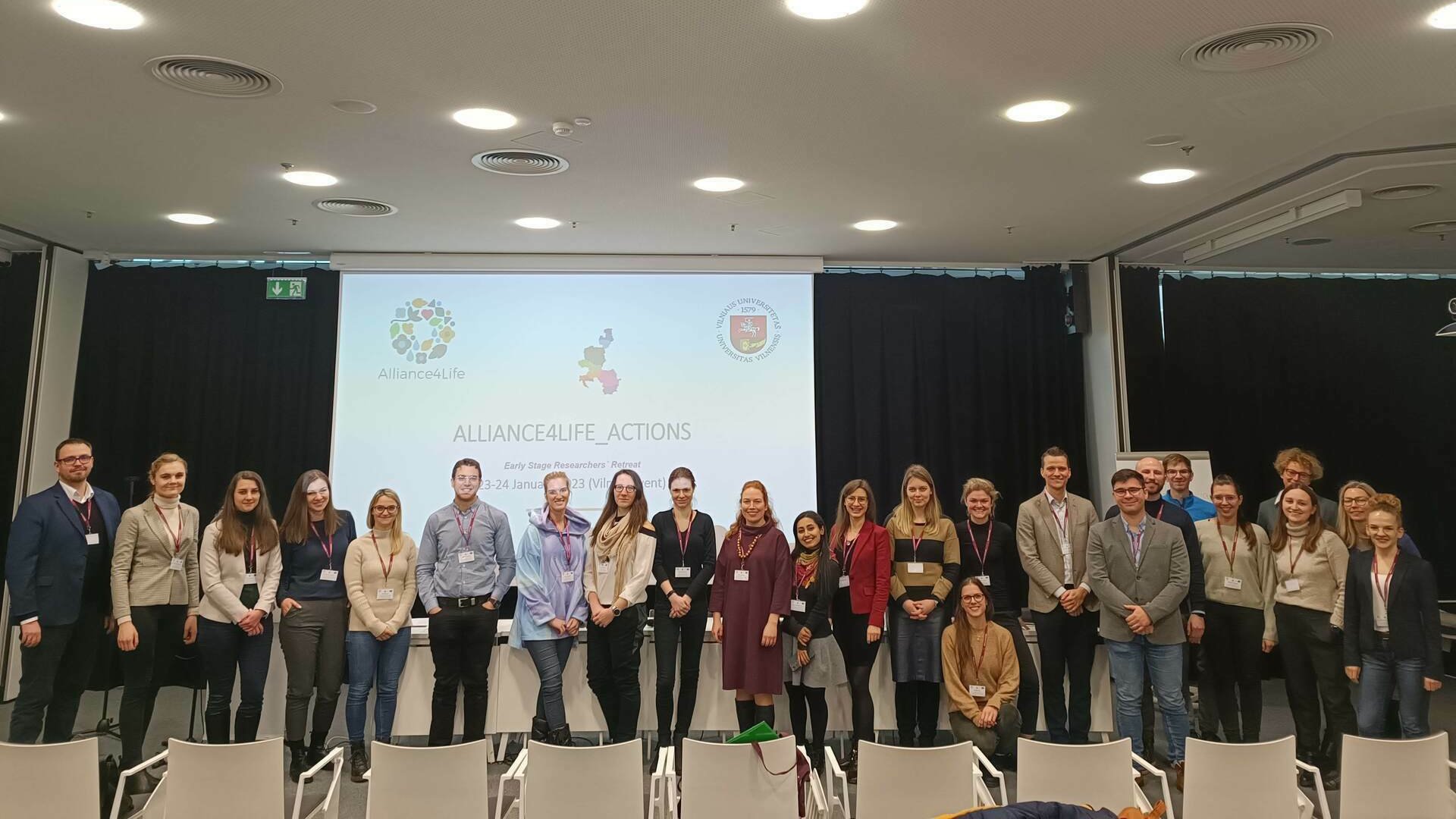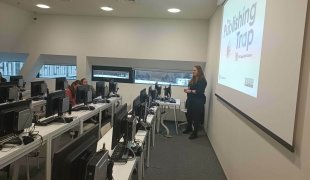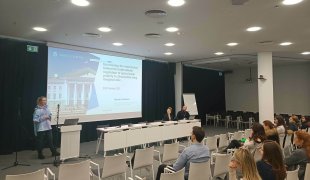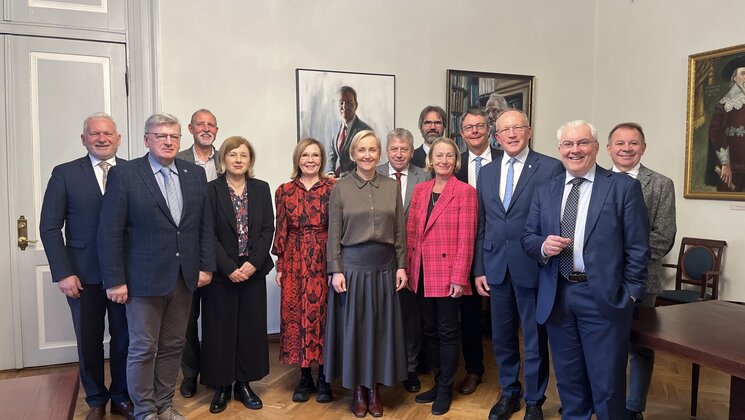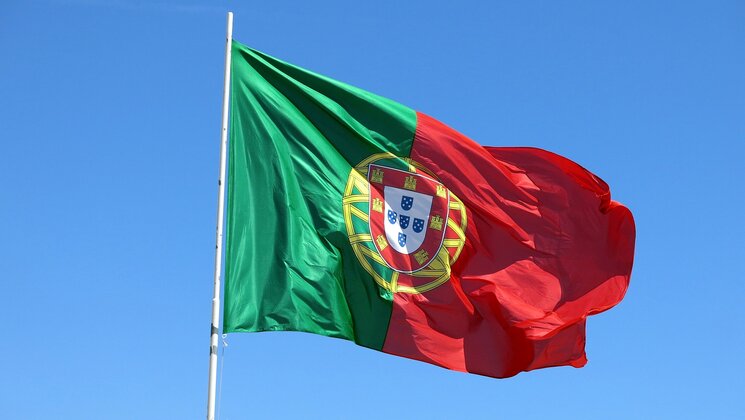Vilnius University hosted research management administrators and early stage researchers within the Alliance4Life consortium
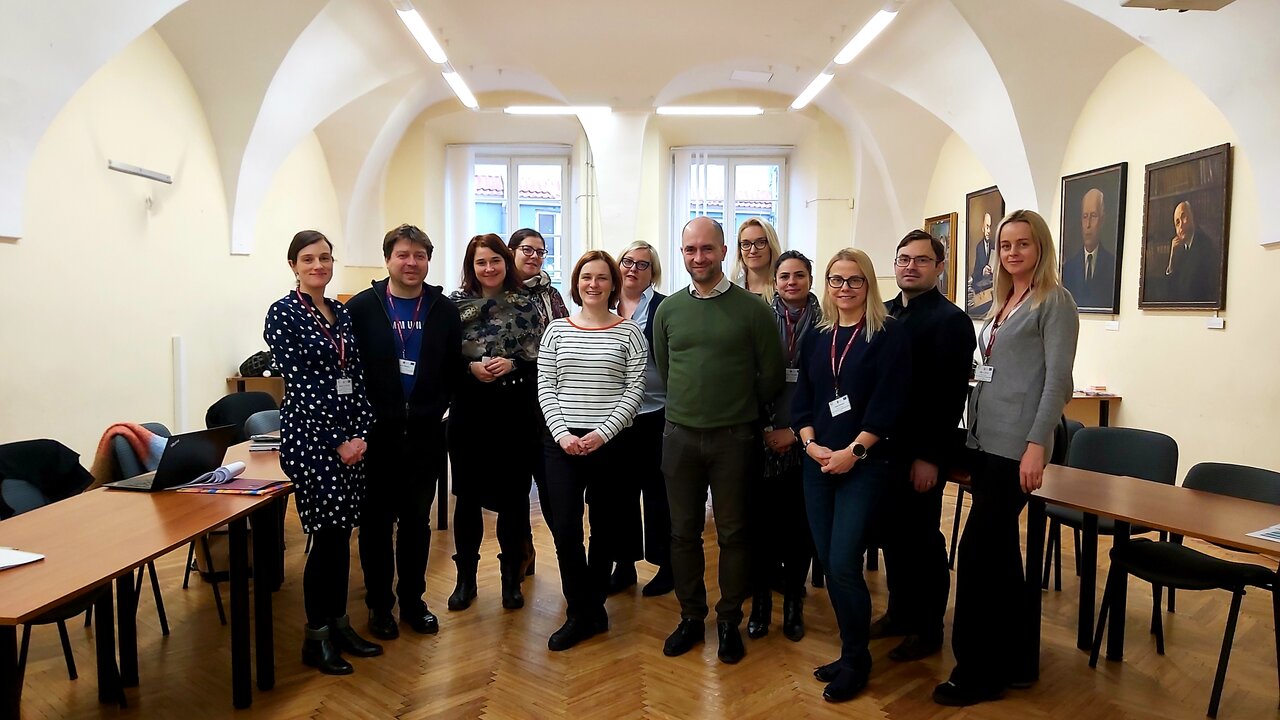
The bottom-up initiative of twelve leading life science institutions from eleven EU-13 countries Alliance4Life held it’s second Research Management Administration Academy (RMA Academy) and Early Stage Researchers’ Retreat on the last week of January in the Lithuanian capital Vilnius.
Both the academy and the retreat are examples of the key activities within the Alliance4Life aimed at improving the professional skills of research managers and administrators in Central and Eastern Europe and bringing together post-doc researchers and doctoral students for knowledge sharing and match-making.
3-day RMA Academy session whick took place in the historical main building of Vilnius University, follow-up to the first Academy of 2022 in Bulgarian capital Sofia, concentrated on the following topics:
- How to establish cooperation between academia and business
- Boosting the creativity of research teams
- Grant writing
- Budgeting R&I projects
- Management of research projects using online tools
The trainers came from two universities of the Alliance, Medical University of Lodz and Masaryk University. Magdalena Wrzesinska (PhD) and Karolina H. Czarnecka-Chrebelska (PhD) from Lodz covered the first two and the last topic. Jakub Zeman and Ladislav Čoček from Masaryk, who trained colleagues also last time during the first session in Sofia 2022, covered the grant writing and budgeting parts.
How to establish cooperation between academia and business
The cooperation between these two sectors becomes more relevant in time. Start-up’s quite often lack know-how, top-specialists, infrastructure and to overcome these obstacles they need access to academia and it's laboratories. The two sectors, research in the universities and business, have several differences, for example for researcher the impact factor is important but for the business it is replaced by quick results and profit. The training was focused on finding the common path and cooperation in the frame of diferent needs and expectations.
The training concluded with the knowledge that flexibility is expected from both sides. The approach to work on the basis of work package or activity and with a sufficient amount of time to prepare a joint grant application prevailed, as there are additional issues related to intellectual property.
Boosting the creativity of research teams
The training involved several practical exercises. The aim of the trainig was to teach project managers to feel the differences in the team and to provide them with the tools of team work. The role-game "What if?" evoked discussion about the need of constructive cirticism, giving also positive feedback and developing the idea further in a team. Research teams are usually put together of people who are experts in their field but they reflect different interests, they may have different work habits, different abilities, they may even represent different cultures. The increase of creativity in such teams is possible through small steps and activities.
Grant writing
This part of training gave practical tips about the style of writing a grant. Grant writing can be similar to writing a novel – meaning, the style of the grant should evoke positive interest in the evaluator and communicate with him. A good project proposal is short, understandable to a reader and simple in structure. Grant writing is very different from writing a scientific paper. In scientific paper special terminology is important, there are no space limits, your paper is read by the specialistis of your field. The project proposal, on the contrary, depending on the call, can be read by entrepreneurs, there are space limits, the style should be simple and language understandable to a common reader. The training gave examples about the good style of writing, the time scope of putting together an application, the order of the work processes, the division of duties between the coordinator and partnres.
Budgeting R&I projects and using online tools in project management
In the part of budgeting different types of budgets were introduced. The modules of putting together the budget and the roles of the coordinator and partners were discussed.
The last training was about several online tools which help the project manager to manage the whole project starting from planning to carrying the project out. There are several online tools and some of them were already familiar to the participants. Online tools help project manager both in planning the project, putting together the team, mapping the needs of the project idea, quicker and more efficiently to plan and monitor, manage the whole project. Mind-mapping programs were introduced in more detail.
Tartu University was represented by two participants in the academy - gant management specialist Laura Tomson from the Grant Office and project manager Teele Eensaar from the Institute of Molecular and Cell Biology.
The third session of RMA Academy is going to be held at the end of 2023 or in 2024.
Early Stage Researchers Retreat
On 23-24 January, the Early Stage Researchers Retreat brought together PhD students and postdocs from Alliance4Life partner institutions to Vilnius University Library for a joint retreat full of learning and knowledge sharing.
Scientific presentations, poster sessions, career talks and skills training sections were part of the programme.
The retreat among the members of the alliance took place also for the second time.
The key-note speaker of the event was Dr Darius Balčiūnas (Ass. Prof. at the Department of Biology at Temple University and Senior Researcher at Life Sciences Center, Vilnius University) who presented his research work in the heart regeneration field. His research module is zebrafish.
ESR retreat participants also listened to Prof. Artūras Petronis' (Senior Scientist and Head of Krembil Family Epigenetics Laboratory at Campbell Family Mental Health Research Institute and Senior Researcher at Life Sciences Center, Vilnius University) presentation about chrono-epigenomics of human disease and Dr Jonas Bunikis’ (Research Programme Officer in Life Sciences at the European Research Council) presentation about grantsmanship and the art of persuasion that pays.
Around 20 participating PhD students and postdocs had to send their posters beforehand and during the event they all had also the possibility to present their topic in a short oral presentation up to 5 minutes followed by short discussion with the audience. What made the logic of the presentations more exciting was the fact that only the organizer knew the order of the presentations. This kept the young scientists in positive and constant tense. The topics of the presentations varied from enzyme engineering, genome sequencing, nanoparticles, epigenetics, treatment of Alzheimer’s and heart diseases.
The University of Tartu was represented by the PhD student from the curriculum of Gene Technology in the Institute of Molecular and Cell Biology, Hanna Antson, who explores common fruit fly Drosophila, a simple but promising model organism to transfer obtained knowledge hopefully to common medical practice.
The young scientists also participated in an interactive board game called “Publishing trap”, organized by the Vilnius University Library. This game allowed them to explore the impact of scholarly communications choices and the role of open access in research.
During the same week Vilnius University also hosted two other events:
On January 22, the Board of the Alliance4Life gathered;
On January 24, Trigger Event Vilnius was held to discuss Lithuanian research assessment reform. The Trigger Event brough together more than 70 representatives from Lithuanian universities, ministries and government bodies.


